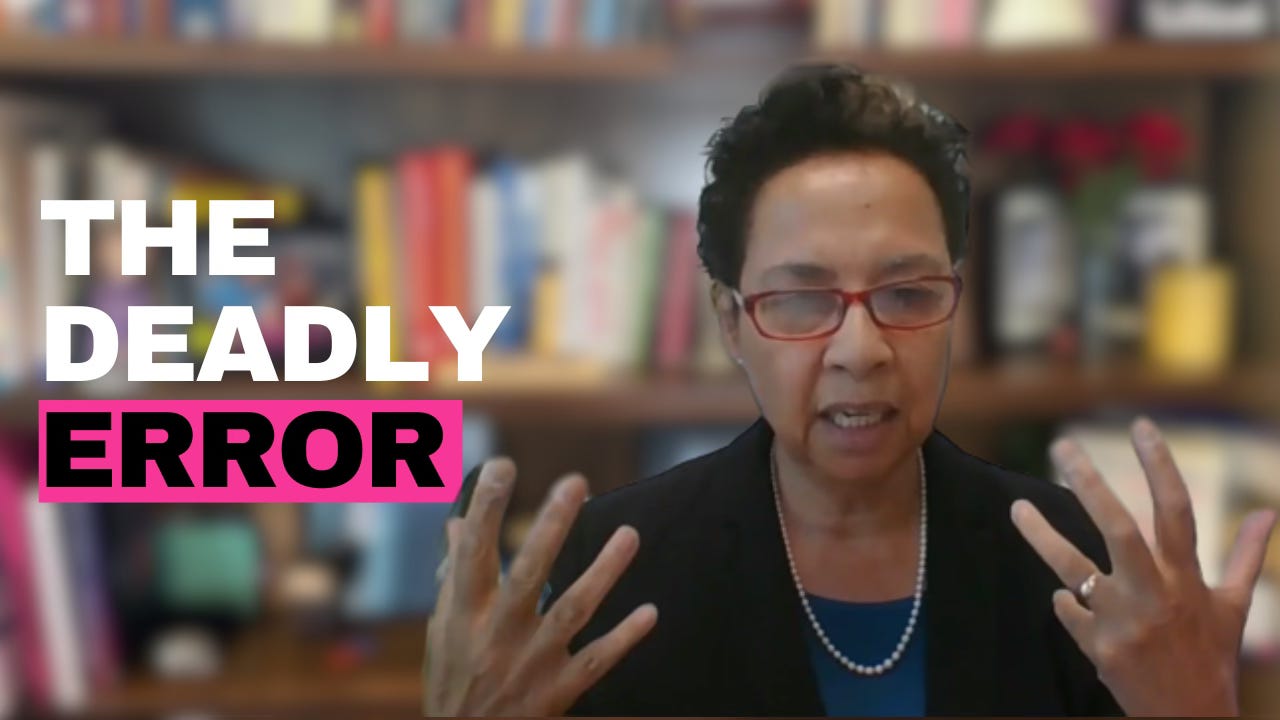Maybe try to deal with resistance before it happens rather than expecting it to happen
Unconventional approach with Dr. Dawn Leanne
"Is it possible that we could maybe try to deal with resistance before it happens rather than expecting it to happen?"
Here's an oncologist saying out loud what every person with metastatic cancer thinks but doesn't dare ask: what if we're doing this backwards?
Dr. Lemanne told me about a patient whose prostate cancer had stopped responding to hormone therapy. The usual next step? Potent chemotherapies that would make him sicker. Instead, her team at Moffitt Cancer Center did something counterintuitive: they gave him testosterone. The very hormone they'd been blocking.
"We were able to move him back along the time spectrum to a place where his tumor was still sensitive to the usual treatments," she explained. "Then we pulse those treatments rather than giving them constantly."
Think about that. Instead of accepting resistance as inevitable, they reversed it. They made an "incurable" cancer treatable again.
This isn't just theoretical. Dr. Lemanne uses liquid biopsies, blood tests that measure circulating tumor DNA, to monitor tumor growth and shrinkage in real time. No more waiting three months between scans to find out if treatment is working. "We need to know in real time whether this treatment with its toxicities is actually doing anything beneficial," she said.
Most oncologists use maximum doses continuously until resistance develops. Dr. Lemanne's approach is different; she uses the tumor's own behavior to determine dosing and timing. It's like playing chess with cancer instead of whack-a-mole.
She's not just treating the cancer. Dr. Lemanne has her patients track everything, sleep, continuous glucose monitors, exercise zones, and even how antibiotics affect their gut microbiome. Because all of these variables influence how well treatment works.
"I haven't met anyone who doesn't like to feel like, after a terrible diagnosis, like a cancer diagnosis where your life is threatened, having some more control is generally something that people thrive with," she told me.
The most dangerous assumption oncology makes? "That treatment should be maximal and continuous, and that is a recipe for resistance development." We've learned this lesson in agriculture,you can't apply pesticides at maximum dose constantly without creating resistance. Yet that's exactly what we do with cancer drugs.
When I asked what changes first when mathematical oncology becomes mainstream, Dr. Lemanne's answer surprised me. It won't just be better drugs,it'll be cancer becoming truly treatable. Not the polite fiction of "treatable but not curable" we tell patients now, but genuinely manageable for decades.
What if the future of cancer treatment isn't about finding better weapons, but about getting smarter with the ones we have?
Get more of Dr. Lemanne’s insights as a subscriber to KCAPodcast and support Kicking Cancer’s Ass.
More information:


